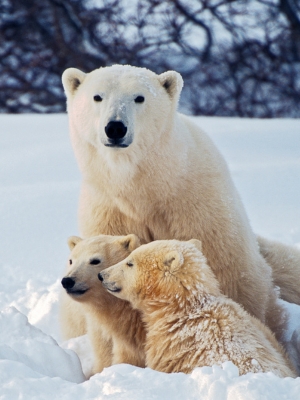Some questions have no right answers. And, in my capacity as a director of an organization, Species Survival Network, which deals entirely with issues pertaining to international trade in wild animals and plants listed under the Convention on International Trade in Endangered Species (CITES), I recently dealt with just such a question.
I’m among many people appalled by the treatment of captive marine (and other) mammals at Marineland, Niagara Falls. It is a theme-park zoo and aquarium that imprisons around 50 beluga whales, each having a microscopic fraction of one percent of the space open to wild belugas. It was heartbreaking to see. Getting them out of there is far outside my ability, but doing so would be an extremely high priority.
But then came news that Oceanographic, in Valencia, Spain wanted to import two belugas from Marineland. Oceanographic is a vastly more upscale zoo-aquarium than Marineland, with, reportedly, some 45,000 animals of 500 species housed in “Jetsonian” architecture of the kind that used to dominate 1950s science fiction movies depicting a gleaming future that will never be. It is affiliated with Canada’s only other aquarium featuring marine mammals, in Vancouver. The Oceanographic is touted as the largest complex of its type in Europe, complete with a dolphinarium and nine “underwater towers” featuring various oceanic “ecosystems.””
However pretty from the outside, prisons are prisons and the space available to Oceanographic’s belugas is still microscopic compared to the vastness of their natural range in the wild. I’ve viewed thousands of belugas in the dark waters below as I’ve flown up the western shoreline of Hudson Bay, a bay that is nearly twice the size of all of Spain! It’s more than space, of course, that these animals will not experience, since no aquarium can provide the rich complexity and social interactions of their natural environment. As folks learn more about cetaceans – whales and dolphins – societal norms are shifting away from accepting our “right” to imprison these animals for our own fun and profit.
Canada was just days away from adopting Bill S-203, The Ending the Captivity of Whales and Dolphins Act, when I was asked if we should agree to sign on to our European colleagues’ request to oppose sending two belugas from Marineland to Oceanographic. I so wanted to get any beluga out of Marineland, and yet it was impossible to see a real net benefit to the poor belugas in being moved.
Not that I think Canada will listen to us, but yes, I agreed that we should endorse the letter because there was no gain for the belugas, only the added stress of being moved. Eventually, so long as some future government does not overturn Bill S-203, future Canadians won’t be asked to make such choices, future cetaceans won’t be imprisoned in Canada or, I trust, Europe or anywhere else, unless (and this is allowed under the terms of our new act) it is in the individual animal’s best interest.
Keep Wildlife in the Wild,
Barry

 Dear Reader,
Dear Reader,